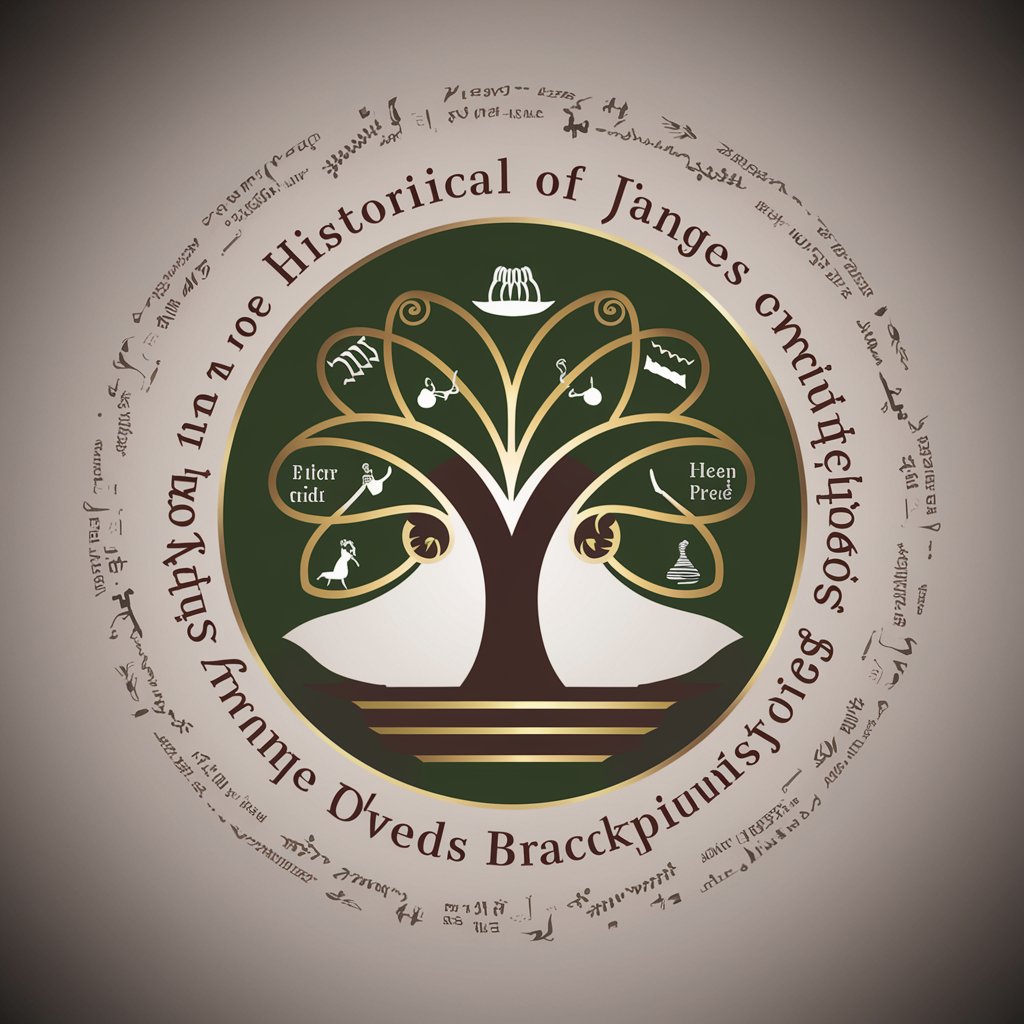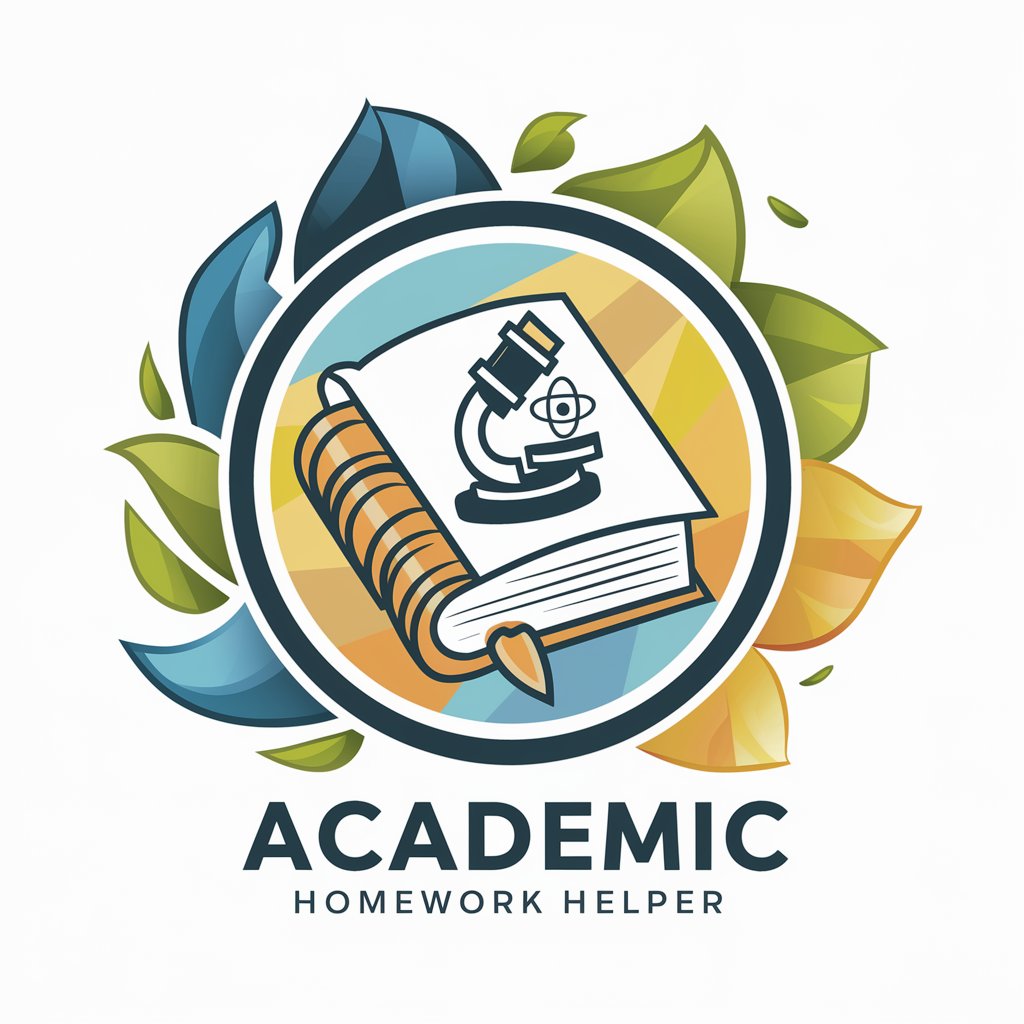
History and Origin of Words and Phrases - etymology exploration tool

Welcome! Let's explore the origins of words and phrases together.
Unlock the history behind words and phrases with AI.
Can you explain the etymology of the word
What is the historical background of the phrase
How did the term
Could you delve into the linguistic origins of
Get Embed Code
Exploring History and Origin of Words and Phrases
History and Origin of Words and Phrases is an AI-driven platform designed to delve into the etymology, cultural, and historical backgrounds of words and phrases. This system is adept at unpacking the layers behind linguistic constructs, offering insights into how languages evolve and how words carry the imprints of history. For instance, understanding the word 'decimate' involves exploring its Latin roots from 'decimare', originally meaning 'to take a tenth', which has evolved in modern usage to mean 'to destroy a large portion of'. Through such explorations, users gain not only linguistic knowledge but also cultural and historical contexts. Powered by ChatGPT-4o。

Core Functions and Applications
Etymological Analysis
Example
Explaining the origin of 'serendipity' from the Persian fairy tale 'The Three Princes of Serendip', illustrating how words can encapsulate narratives and cultural exchanges.
Scenario
Used by writers or linguists seeking to enrich their work with nuanced word choices and by educators crafting engaging language lessons.
Cultural and Historical Contextualization
Example
Tracing the evolution of the term 'boycott' from its namesake Charles C. Boycott to its current meaning, reflecting social and historical dynamics.
Scenario
Beneficial for historians, sociologists, and cultural researchers analyzing linguistic reflections of societal changes.
Linguistic Evolution Tracking
Example
Detailing the shift in meaning of 'awful' from 'inspiring wonder' to 'very bad', showcasing the dynamic nature of language.
Scenario
Ideal for language enthusiasts and scholars interested in the fluidity and adaptability of language over time.
Target User Groups
Academics and Researchers
This group, encompassing linguists, historians, and sociologists, benefits from the detailed analyses and contextual backgrounds provided, aiding in scholarly research and teaching.
Writers and Content Creators
These users utilize the service to enhance their narratives, character dialogues, or content with historically and culturally rich language, adding depth and authenticity.
Language and History Enthusiasts
Individuals with a keen interest in the stories behind words and the evolution of language find the service enriching for personal knowledge and engagement in community discussions.

Guidelines for Using History and Origin of Words and Phrases
Start Your Journey
Access a comprehensive exploration of etymology without the need for registration or a premium account by visiting yeschat.ai.
Identify Your Query
Consider the word or phrase you're curious about. This can range from common everyday language to obscure historical terms.
Engage with Erik
Submit your query directly related to the history, origin, or cultural background of a specific word or phrase.
Review the Insights
Carefully read the detailed explanation provided, noting any linguistic, historical, or cultural insights.
Further Inquiry
For additional clarity or deeper understanding, feel free to ask follow-up questions or request simplification of complex explanations.
Try other advanced and practical GPTs
Consistency Crafter 2024
Crafting consistent character visuals with AI

UXPeer
Empowering Design with AI

Pharma Policy Guide
AI-driven Pharma Policy Intelligence

Pookie Williams
Hustle with a hint of humor.

Gear Guide for Outdoor Sports
AI-Powered Outdoor Gear Expertise

Academic Homework Helper
Empowering your academic journey with AI.

New Employee Onboarding Plan
Streamlining New Employee Onboarding with AI

Innovative Business Namer and Logo Creator
Craft Your Brand's Identity with AI Creativity

Visionary Life Planner
Envision Your Future with AI

Epic Headline Helper
Craft Compelling Headlines with AI

Curious Cat
Ignite Your Curiosity with AI

COLORING BOOK BUILDER
Unleash Creativity with AI-Powered Art

Detailed Q&A on History and Origin of Words and Phrases
What types of words or phrases can I explore?
You can explore a wide range of terms, from archaic and obsolete words, slang, idioms, to technical jargon, across various languages and dialects. Each query delves into linguistic evolution, cultural significance, and historical context.
Can I learn about phrases in non-English languages?
Absolutely. While English is a primary focus, the exploration extends to phrases and words from a multitude of languages, analyzing their roots, evolution, and how they've influenced or been influenced by English.
How detailed are the explanations?
Explanations are comprehensive, covering etymological origins, linguistic development, and cultural history. They are designed to cater to both casual enthusiasts and academic researchers seeking in-depth knowledge.
Is this tool suitable for academic research?
Yes, it is an invaluable resource for students, linguists, historians, and writers. It provides detailed citations and references that can support academic research, writing, and the exploration of linguistic history.
How can I make the most out of my queries?
Be specific with your inquiries and open to exploring related terms or phrases suggested. The more precise your question, the more targeted and informative the response will be.